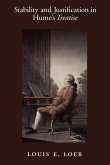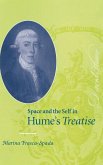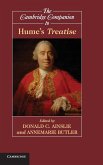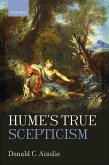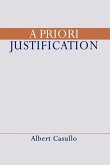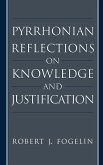The distinguished philosopher Louis Loeb examines the epistemological framework of Scottish philosopher David Hume, as employed in his celebrated work A Treatise of Human Nature. Loeb's project is to advance an integrated interpretation of Hume's accounts of belief and justification. His thesis is that Hume, in his Treatise, has a "stability-based" theory of justification which posits that his belief is justified if it is the result of a belief producing mechanism that engenders stable beliefs. But Loeb argues that the striking (if paradoxical) corollary to this theory is that no belief generating mechanism is fully stable - or fully justified - for a fully reflective person. This carefully argued and original interpretation of Hume makes sense of seemingly contradictory ideas and will provoke serious discussion among Hume scholars.
Bitte wählen Sie Ihr Anliegen aus.
Rechnungen
Retourenschein anfordern
Bestellstatus
Storno



